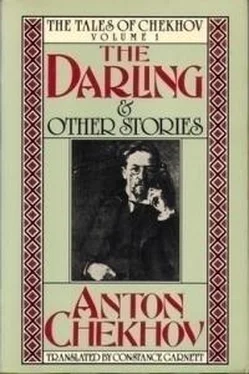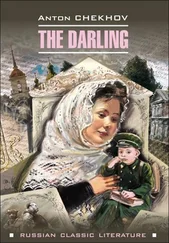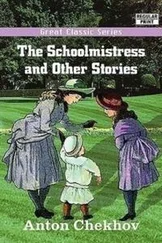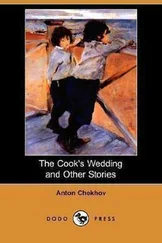Антон Чехов - The Darling
Здесь есть возможность читать онлайн «Антон Чехов - The Darling» — ознакомительный отрывок электронной книги совершенно бесплатно, а после прочтения отрывка купить полную версию. В некоторых случаях можно слушать аудио, скачать через торрент в формате fb2 и присутствует краткое содержание. Год выпуска: 2014, Издательство: epubBooks Classics, Жанр: Классическая проза, на английском языке. Описание произведения, (предисловие) а так же отзывы посетителей доступны на портале библиотеки ЛибКат.
- Название:The Darling
- Автор:
- Издательство:epubBooks Classics
- Жанр:
- Год:2014
- ISBN:нет данных
- Рейтинг книги:5 / 5. Голосов: 1
-
Избранное:Добавить в избранное
- Отзывы:
-
Ваша оценка:
- 100
- 1
- 2
- 3
- 4
- 5
The Darling: краткое содержание, описание и аннотация
Предлагаем к чтению аннотацию, описание, краткое содержание или предисловие (зависит от того, что написал сам автор книги «The Darling»). Если вы не нашли необходимую информацию о книге — напишите в комментариях, мы постараемся отыскать её.
The Darling — читать онлайн ознакомительный отрывок
Ниже представлен текст книги, разбитый по страницам. Система сохранения места последней прочитанной страницы, позволяет с удобством читать онлайн бесплатно книгу «The Darling», без необходимости каждый раз заново искать на чём Вы остановились. Поставьте закладку, и сможете в любой момент перейти на страницу, на которой закончили чтение.
Интервал:
Закладка:
Then he began going to the Byelavins' as an accepted suitor, three or four times a day; and now he never had time to take Sasha's place and read aloud the historical novel. Yulia used to receive him in her two rooms, which were at a distance from the drawing–room and her father's study, and he liked them very much. The walls in them were dark; in the corner stood a case of ikons; and there was a smell of good scent and of the oil in the holy lamp. Her rooms were at the furthest end of the house; her bedstead and dressing–table were shut off by a screen. The doors of the bookcase were covered on the inside with a green curtain, and there were rugs on the floor, so that her footsteps were noiseless—and from this he concluded that she was of a reserved character, and that she liked a quiet, peaceful, secluded life. In her own home she was treated as though she were not quite grown up. She had no money of her own, and sometimes when they were out for walks together, she was overcome with confusion at not having a farthing. Her father allowed her very little for dress and books, hardly ten pounds a year. And, indeed, the doctor himself had not much money in spite of his good practice. He played cards every night at the club, and always lost. Moreover, he bought mortgaged houses through a building society, and let them. The tenants were irregular in paying the rent, but he was convinced that such speculations were profitable. He had mortgaged his own house in which he and his daughter were living, and with the money so raised had bought a piece of waste ground, and had already begun to build on it a large two–storey house, meaning to mortgage it, too, as soon as it was finished.
Laptev now lived in a sort of cloud, feeling as though he were not himself, but his double, and did many things which he would never have brought himself to do before. He went three or four times to the club with the doctor, had supper with him, and offered him money for house–building. He even visited Panaurov at his other establishment. It somehow happened that Panaurov invited him to dinner, and without thinking, Laptev accepted. He was received by a lady of five–and–thirty. She was tall and thin, with hair touched with grey, and black eyebrows, apparently not Russian. There were white patches of powder on her face. She gave him a honeyed smile and pressed his hand jerkily, so that the bracelets on her white hands tinkled. It seemed to Laptev that she smiled like that because she wanted to conceal from herself and from others that she was unhappy. He also saw two little girls, aged five and three, who had a marked likeness to Sasha. For dinner they had milk–soup, cold veal, and chocolate. It was insipid and not good; but the table was splendid, with gold forks, bottles of Soyer, and cayenne pepper, an extraordinary bizarre cruet–stand, and a gold pepper–pot.
It was only as he was finishing the milk–soup that Laptev realised how very inappropriate it was for him to be dining there. The lady was embarrassed, and kept smiling, showing her teeth. Panaurov expounded didactically what being in love was, and what it was due to.
"We have in it an example of the action of electricity," he said in French, addressing the lady. "Every man has in his skin microscopic glands which contain currents of electricity. If you meet with a person whose currents are parallel with your own, then you get love."
When Laptev went home and his sister asked him where he had been he felt awkward, and made no answer.
He felt himself in a false position right up to the time of the wedding. His love grew more intense every day, and Yulia seemed to him a poetic and exalted creature; but, all the same, there was no mutual love, and the truth was that he was buying her and she was selling herself. Sometimes, thinking things over, he fell into despair and asked himself: should he run away? He did not sleep for nights together, and kept thinking how he should meet in Moscow the lady whom he had called in his letters "a certain person," and what attitude his father and his brother, difficult people, would take towards his marriage and towards Yulia. He was afraid that his father would say something rude to Yulia at their first meeting. And something strange had happened of late to his brother Fyodor. In his long letters he had taken to writing of the importance of health, of the effect of illness on the mental condition, of the meaning of religion, but not a word about Moscow or business. These letters irritated Laptev, and he thought his brother's character was changing for the worse.
The wedding was in September. The ceremony took place at the Church of St. Peter and St. Paul, after mass, and the same day the young couple set off for Moscow. When Laptev and his wife, in a black dress with a long train, already looking not a girl but a married woman, said good–bye to Nina Fyodorovna, the invalid's face worked, but there was no tear in her dry eyes. She said:
"If—which God forbid—I should die, take care of my little girls."
"Oh, I promise!" answered Yulia Sergeyevna, and her lips and eyelids began quivering too.
"I shall come to see you in October," said Laptev, much moved. "You must get better, my darling."
They travelled in a special compartment. Both felt depressed and uncomfortable. She sat in the corner without taking off her hat, and made a show of dozing, and he lay on the seat opposite, and he was disturbed by various thoughts—of his father, of "a certain person," whether Yulia would like her Moscow flat. And looking at his wife, who did not love him, he wondered dejectedly "why this had happened."
V
The Laptevs had a wholesale business in Moscow, dealing in fancy goods: fringe, tape, trimmings, crochet cotton, buttons, and so on. The gross receipts reached two millions a year; what the net profit was, no one knew but the old father. The sons and the clerks estimated the profits at approximately three hundred thousand, and said that it would have been a hundred thousand more if the old man had not "been too free–handed"—that is, had not allowed credit indiscriminately. In the last ten years alone the bad debts had mounted up to the sum of a million; and when the subject was referred to, the senior clerk would wink slyly and deliver himself of sentences the meaning of which was not clear to every one:
"The psychological sequences of the age."
Their chief commercial operations were conducted in the town market in a building which was called the warehouse. The entrance to the warehouse was in the yard, where it was always dark, and smelt of matting and where the dray–horses were always stamping their hoofs on the asphalt. A very humble–looking door, studded with iron, led from the yard into a room with walls discoloured by damp and scrawled over with charcoal, lighted up by a narrow window covered by an iron grating. Then on the left was another room larger and cleaner with an iron stove and a couple of chairs, though it, too, had a prison window: this was the office, and from it a narrow stone staircase led up to the second storey, where the principal room was. This was rather a large room, but owing to the perpetual darkness, the low–pitched ceiling, the piles of boxes and bales, and the numbers of men that kept flitting to and fro in it, it made as unpleasant an impression on a newcomer as the others. In the offices on the top storey the goods lay in bales, in bundles and in cardboard boxes on the shelves; there was no order nor neatness in the arrangement of it, and if crimson threads, tassels, ends of fringe, had not peeped out here and there from holes in the paper parcels, no one could have guessed what was being bought and sold here. And looking at these crumpled paper parcels and boxes, no one would have believed that a million was being made out of such trash, and that fifty men were employed every day in this warehouse, not counting the buyers.
Читать дальшеИнтервал:
Закладка:
Похожие книги на «The Darling»
Представляем Вашему вниманию похожие книги на «The Darling» списком для выбора. Мы отобрали схожую по названию и смыслу литературу в надежде предоставить читателям больше вариантов отыскать новые, интересные, ещё непрочитанные произведения.
Обсуждение, отзывы о книге «The Darling» и просто собственные мнения читателей. Оставьте ваши комментарии, напишите, что Вы думаете о произведении, его смысле или главных героях. Укажите что конкретно понравилось, а что нет, и почему Вы так считаете.












